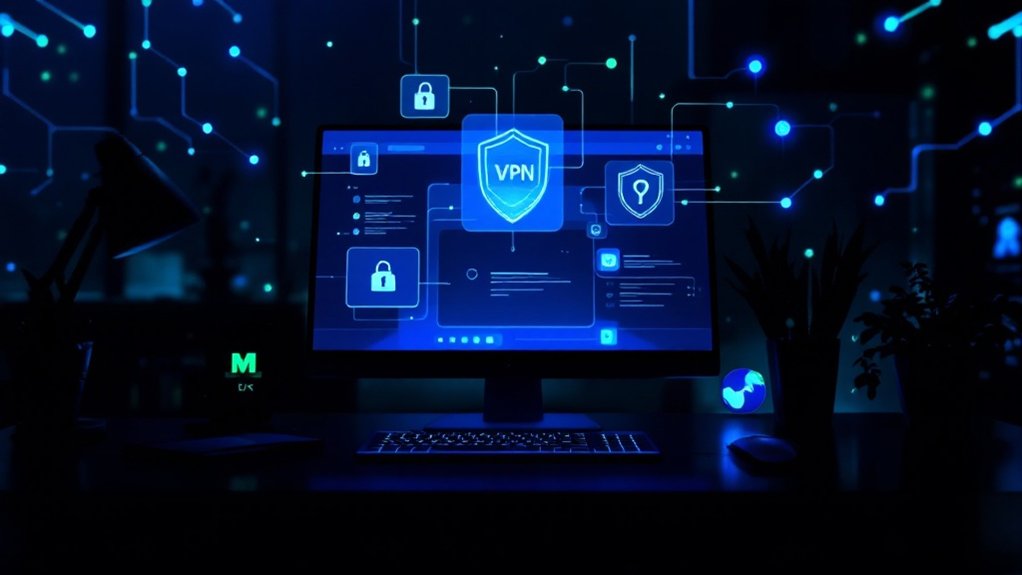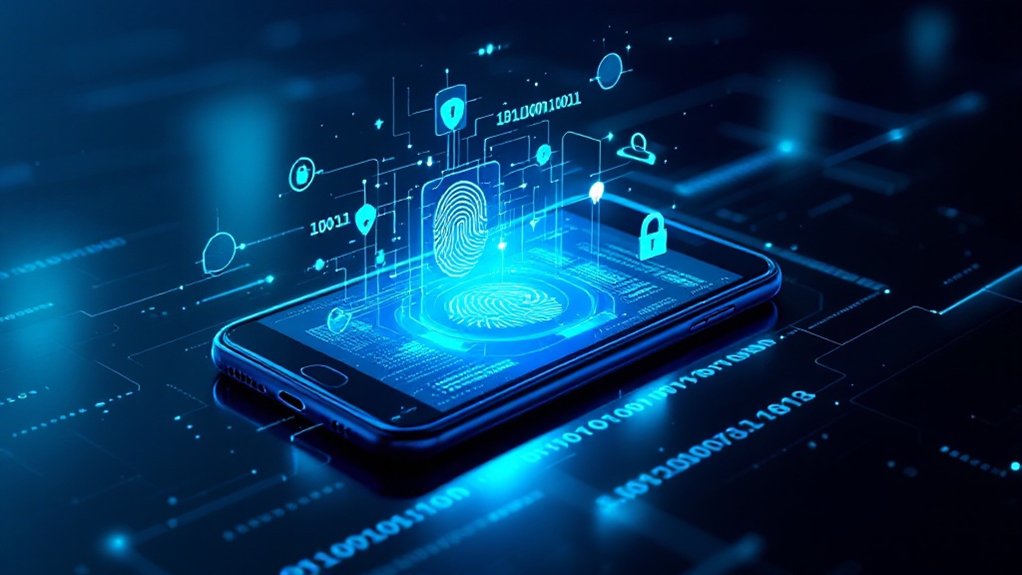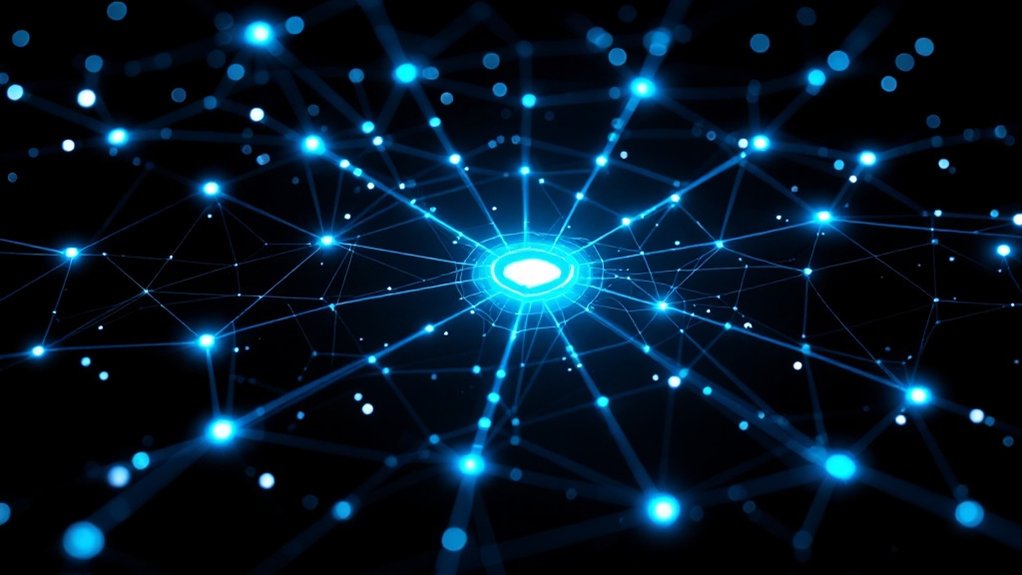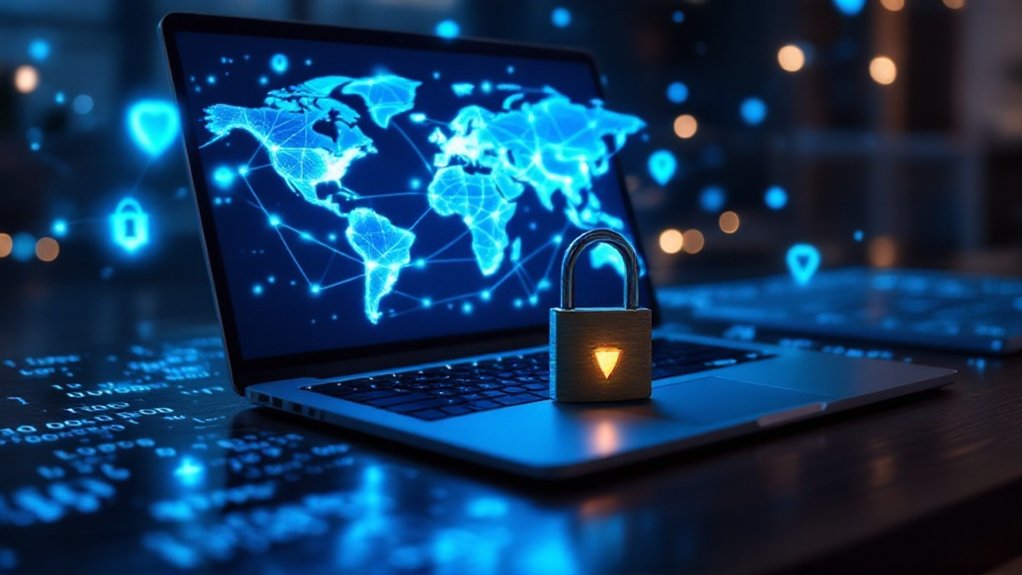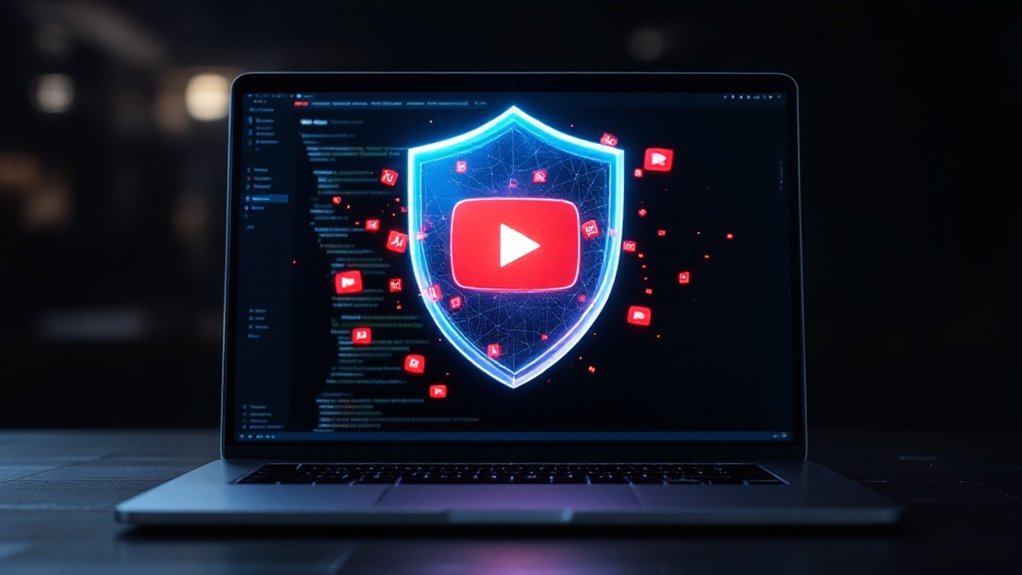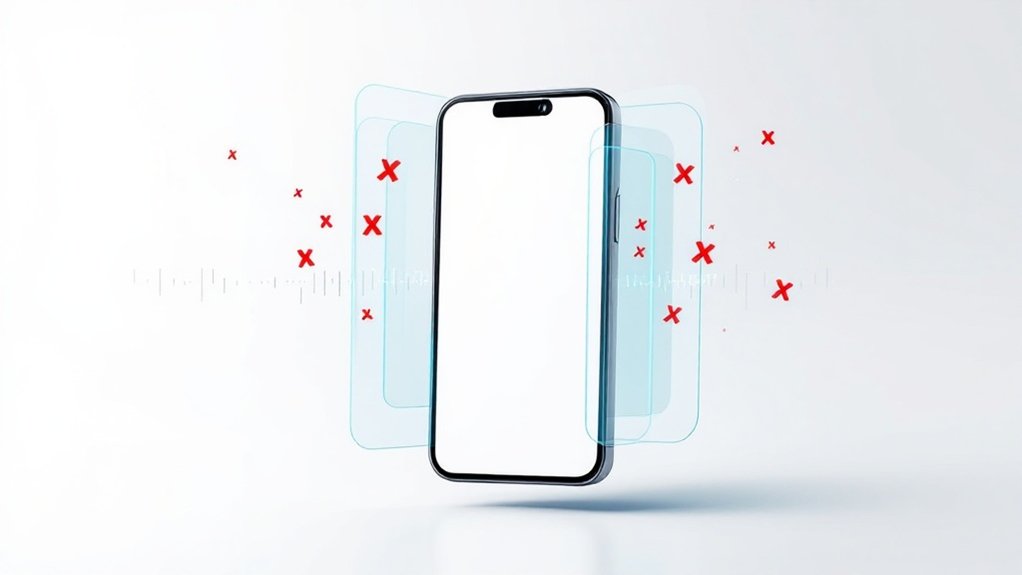Accessing the dark web safely requires multiple security layers, including the Tor browser with maximum settings, disabled JavaScript, and a reputable no-logs VPN. Users must employ secure operating systems like Tails or Whonix, verify .onion links through trusted directories, and maintain strict anonymity protocols. Although the dark web represents only a fraction of deep web infrastructure, proper security measures, including encrypted devices and cryptocurrency transactions, prove vital. Understanding additional technical safeguards guarantees ideal protection during exploration.
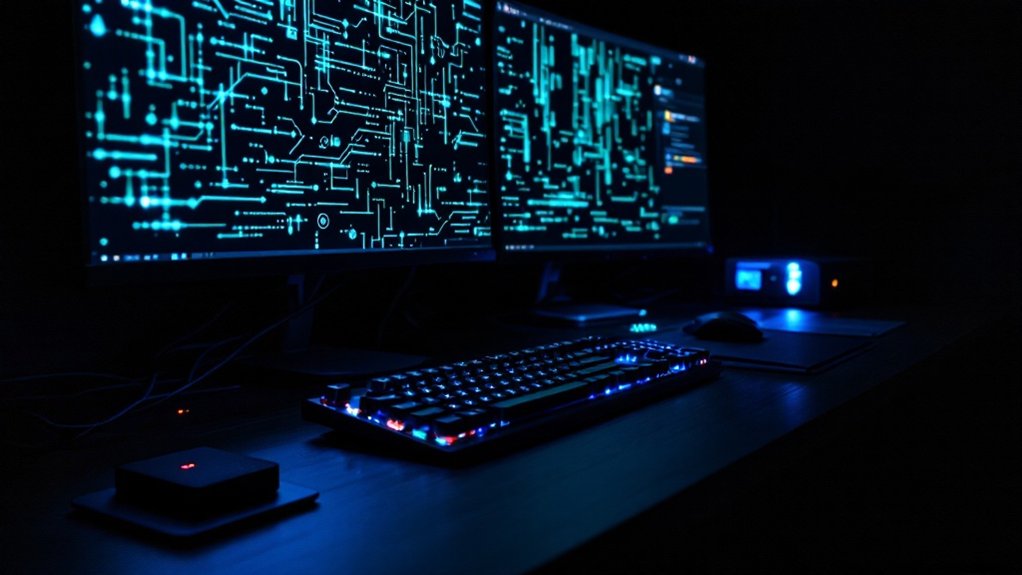
Maneuvering the dark web requires extensive security measures and careful preparation to protect one’s privacy and safety. Security experts recommend beginning with the installation of the Tor browser, configured to maximum security settings with JavaScript disabled, as well as utilizing bridges and pluggable transports for improved anonymity. The clear web represents only 4 percent of the total internet space.
Navigating the dark web demands robust security protocols and meticulous planning to safeguard personal privacy while accessing hidden networks.
Regular updates to the latest version guarantee protection against emerging vulnerabilities, in addition to the implementation of a reputable VPN with a strict no-logs policy providing an additional layer of security. Understanding that the dark web is a small portion of the deep web infrastructure helps users contextualize its scope and limitations.
The combination of Tor and VPN protection should be supplemented with secure browsing practices, including verification of .onion links through trusted dark web directories and the avoidance of suspicious downloads or unknown links. Users must maintain vigilance against phishing attempts and scams, and employ strict protocols for disconnecting from internet sessions after dark web access. The hidden services are specifically designed to maintain user anonymity while accessing dark web content.
Cybersecurity analysts stress the importance of using dedicated devices with full-disk encryption and secure operating systems like Tails or Whonix.
Identity protection remains paramount when accessing the dark web, necessitating the use of anonymous usernames and unique passwords unconnected to personal information.
Cryptocurrency transactions offer improved privacy, and specialized dark web monitoring tools help detect potential data breaches or unauthorized access attempts. Security professionals advise against sharing real email addresses or personal details in any dark web communications.
Legal compliance and ethical considerations form the foundation of safe dark web usage. Users must research local regulations regarding dark web access and avoid engagement with illegal content or services.
Regular security audits, including malware scans and vulnerability assessments, help maintain system integrity. Experts recommend implementing a VPN kill switch to prevent IP leaks and selecting servers in privacy-friendly jurisdictions.
The use of reputable antivirus software, combined with regular system updates, provides thorough protection against known threats, and awareness of emerging security risks allows proactive defense measures.
Frequently Asked Questions
Can Law Enforcement Track My Activities on the Dark Web?
Law enforcement agencies possess sophisticated capabilities to track dark web activities through multiple methods, including server seizures, cryptocurrency analysis, and vulnerability exploitation.
Whereas Tor provides anonymity, users can be identified through operational security mistakes, such as failing to use VPNs, reusing usernames, or revealing personal information.
Agencies frequently collaborate with technology companies and utilize advanced monitoring tools to uncover identities, particularly when investigating serious criminal activities.
Is It Illegal to Simply Browse the Dark Web?
Accessing the dark web through browsers like Tor is legal in most countries, including the United States, provided users do not engage in criminal activities.
Although some nations, such as China and Russia, restrict dark web access, the mere act of browsing remains lawful elsewhere. Legal uses include whistleblowing, accessing censored information, and conducting academic research.
Nonetheless, downloading illegal content or purchasing illicit goods constitutes criminal behavior under existing laws.
Should I Use a VPN With Tor for Dark Web Access?
Using a VPN with Tor offers mixed security implications. As it provides an additional encryption layer and masks Tor usage from ISPs, experts note this combination can potentially reduce anonymity if the VPN service keeps logs.
Connection speeds typically decrease by 20-30% as a result of multiple routing layers.
Security researchers recommend using reputable, no-logs VPN services and connecting to the VPN before launching Tor for ideal protection.
What Happens if I Accidentally Access Illegal Content on the Dark Web?
Accidental access to illegal content requires instant cessation of browsing and proper documentation of the incident, including screenshots and timestamps.
Users should contact legal authorities without delay, as unintentional exposure may serve as a mitigating factor.
Technical evidence, such as browser histories and network logs, can help demonstrate lack of intent.
Maintaining detailed records of accidental access is essential for protecting oneself from potential legal consequences.
Can Regular Websites Track Me When I’m Using the Dark Web?
Regular websites can track Tor users through various methods, including JavaScript exploits, browser fingerprinting, and unencrypted traffic interception.
Studies show that 27% of dark web pages contain tracking scripts that function in the same way as surface web trackers.
Although Tor provides base protection, users remain vulnerable when accessing clearnet sites through exit nodes, where malicious actors can potentially monitor traffic patterns and gather identifying information.
